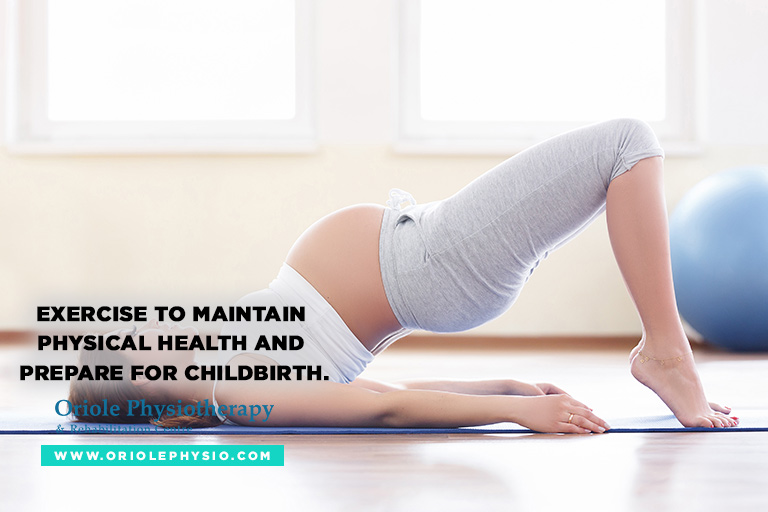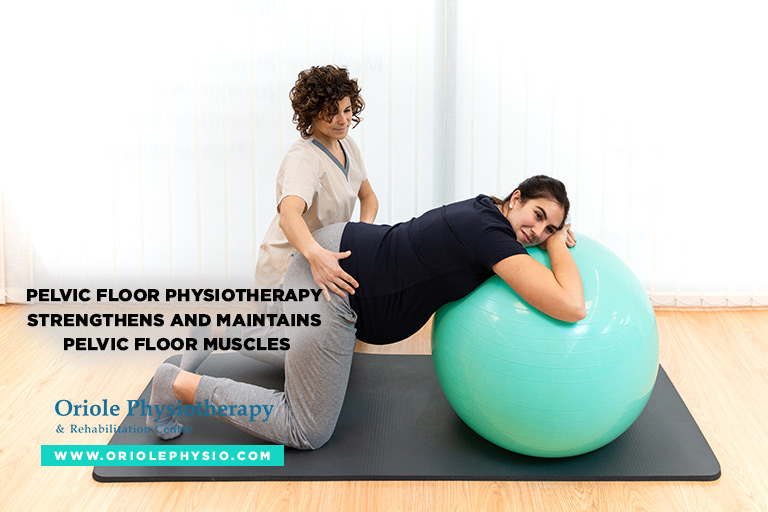Why Physiotherapy is Crucial During Pregnancy
Pregnancy is a transformative journey marked by physical changes and unique challenges. Amidst the joy and anticipation, expectant mothers often experience discomfort and pain associated with their changing bodies. In this article, we delve into the significance of physiotherapy during pregnancy and how it serves as a vital aspect of prenatal care. From addressing back pain to pelvic floor health, physiotherapy plays a crucial role in supporting maternal well-being throughout the pregnancy journey.
Understanding Physiotherapy for Pregnant Women
Physiotherapy during pregnancy focuses on promoting optimal physical health and addressing the specific needs of expectant mothers. It involves tailored interventions designed to enhance comfort, mobility, and overall well-being during this transformative period.
Importance of Physiotherapy During Pregnancy
Physiotherapy during pregnancy serves as a testament to the importance of holistic prenatal care. By addressing the physical challenges unique to pregnancy, physiotherapy ensures expectant mothers navigate their pregnancy journey with greater comfort and ease. It goes beyond traditional healthcare approaches, offering practical solutions to common pregnancy-related discomforts.
-
Holistic Pregnancy Care
Physiotherapy offers holistic care that addresses the unique physical challenges and discomforts experienced during pregnancy.
-
Optimizing Physical Health
By promoting proper alignment, posture, and muscle function, physiotherapy helps optimize physical health and mobility throughout pregnancy.
-
Alleviating Pregnancy Discomfort
Physiotherapy interventions target common discomforts such as back pain, pelvic girdle pain, and postural changes, providing relief and enhancing overall quality of life.
-
Supporting Pelvic Floor Health
Pelvic floor physiotherapy plays a crucial role in strengthening pelvic floor muscles, reducing the risk of incontinence, and supporting pelvic stability during pregnancy and childbirth.
-
Empowering Expectant Mothers
Through education, guidance, and personalized treatment plans, physiotherapy empowers expectant mothers to actively participate in their prenatal care, fostering confidence and resilience.
Pregnancy physiotherapy benefits extend beyond mere relief of symptoms. By improving posture, alleviating discomfort, and enhancing mobility, physiotherapy fosters a healthier pregnancy experience. It serves as a guiding light, empowering expectant mothers to embrace the physical changes of pregnancy with confidence and resilience.
Pregnancy Discomfort Relief
Pregnancy often brings discomfort, such as back pain, pelvic girdle pain, and postural changes. Physiotherapy offers targeted interventions to alleviate these discomforts and improve overall quality of life. Through a combination of manual therapy, exercise, and education, expectant mothers can find relief from common pregnancy-related ailments.
Back Pain Relief During Pregnancy
Back pain is a common complaint among pregnant women, often attributed to the strain placed on the spine and supporting muscles. Physiotherapy interventions focus on relieving back pain, restoring spinal alignment, and promoting optimal posture. By addressing the root causes of back pain, physiotherapy enables expectant mothers to move more comfortably and enjoy their pregnancy journey.
Pelvic Girdle Pain Management
Pelvic girdle pain can significantly impact mobility and quality of life during pregnancy. Physiotherapy offers effective strategies for managing pelvic girdle pain, including targeted exercises, manual therapy, and lifestyle modifications. By addressing muscular imbalances and supporting pelvic stability, physiotherapy helps expectant mothers navigate their daily activities with greater ease.
Posture Correction During Pregnancy
Maintaining good posture is essential for preventing discomfort and promoting optimal spinal alignment during pregnancy. Physiotherapy interventions focus on correcting posture imbalances, strengthening supporting muscles, and providing ergonomic guidance. By incorporating postural corrections into daily routines, expectant mothers can mitigate the effects of pregnancy-related postural changes.
Exercises for Pregnant Women

Safe and effective exercises form an integral part of prenatal care. Physiotherapy empowers pregnant women with tailored exercise routines designed to support their changing bodies and promote overall well-being.
- Walking: A low-impact cardiovascular exercise that can be easily incorporated into daily routines.
- Swimming: Provides a full-body workout while being gentle on the joints due to the buoyancy of water.
- Prenatal Yoga: Promotes flexibility, relaxation, and mindfulness, while also helping to alleviate pregnancy-related discomforts.
- Stationary Cycling: Offers a cardiovascular workout with minimal stress on the joints, ideal for maintaining fitness during pregnancy.
- Pelvic Floor Exercises (Kegels): Strengthens the pelvic floor muscles, helping to prevent urinary incontinence and prepare for childbirth.
- Modified Planks: Helps strengthen the core muscles without putting excessive strain on the abdomen. Modified planks can be performed on hands and knees or against a wall for support.
- Squats: Strengthens the lower body muscles, including the glutes and quadriceps, which can help support the added weight of pregnancy and prepare for labour.
- Pelvic Tilts: Promotes flexibility in the lower back and helps alleviate back pain by gently engaging the abdominal muscles.
- Prenatal Pilates: Focuses on core strength, flexibility, and postural alignment, with exercises modified to accommodate the changing needs of pregnancy.
- Deep Breathing Exercises: Promotes relaxation, reduces stress, and enhances oxygen flow to both mother and baby. Deep breathing exercises can be incorporated into a prenatal exercise routine or practiced independently.
Be sure to consult with a healthcare provider before starting any new exercise program during pregnancy. Additionally, it’s crucial to listen to your body and modify exercises as needed to ensure comfort and safety throughout your pregnancy journey.
Pelvic Floor Physiotherapy During Pregnancy

Pelvic floor physiotherapy for pregnant women is a specialized form of therapy aimed at promoting optimal pelvic floor function and addressing specific issues that arise during gestation. This therapeutic approach is centred around strengthening and preserving the integrity of the pelvic floor muscles. These muscles are pivotal in upholding the pelvic organs, regulating bladder and bowel function, and aiding in the process of childbirth.
Pelvic floor physiotherapy involves targeted exercises, manual therapy techniques, and education tailored to meet the unique needs of pregnant women. A trained physiotherapist assesses pelvic floor function and develops personalized treatment plans to address any issues or concerns.
Benefits of Pelvic Floor Physiotherapy During Pregnancy
-
Prevention of Urinary Incontinence
Pelvic floor physiotherapy helps strengthen the muscles that control bladder function, reducing the risk of urinary incontinence during pregnancy and postpartum.
-
Preparation for Childbirth
By improving pelvic floor strength and flexibility, physiotherapy can enhance the ability to push effectively during labour and reduce the risk of perineal trauma.
-
Alleviation of Pelvic Pain
Many pregnant women experience pelvic girdle pain or discomfort due to the strain placed on the pelvic joints and muscles. Pelvic floor physiotherapy can help alleviate pain and improve pelvic stability.
-
Enhanced Recovery Postpartum
Strong and well-functioning pelvic floor muscles support postpartum recovery, including faster healing of perineal tears or episiotomies.
-
Improved Sexual Function
Pelvic floor physiotherapy can address issues such as pelvic pain or discomfort during intercourse, enhancing sexual function and intimacy postpartum.
-
Prevention of Prolapse
Strengthening the pelvic floor muscles can help prevent pelvic organ prolapse, a condition where the pelvic organs descend into the vaginal canal due to weakened support structures.
Empowering Your Health During Pregnancy
In the world of prenatal care, physiotherapy serves as a vital ally, empowering expectant mothers to embrace their pregnancy journey with confidence and resilience. At Oriole Physiotherapy & Rehabilitation Centre, we understand the importance of physiotherapy in North York during pregnancy. Our team of experienced physiotherapists is dedicated to supporting expectant mothers throughout every stage of their pregnancy journey. Take the first step towards a healthier pregnancy by contacting us at 416-221-0772.
Physiotherapy in North York is more than just a service; it’s a testament to our commitment to maternal well-being and holistic prenatal care. Let us be your partner in ensuring a smooth and comfortable pregnancy experience.

